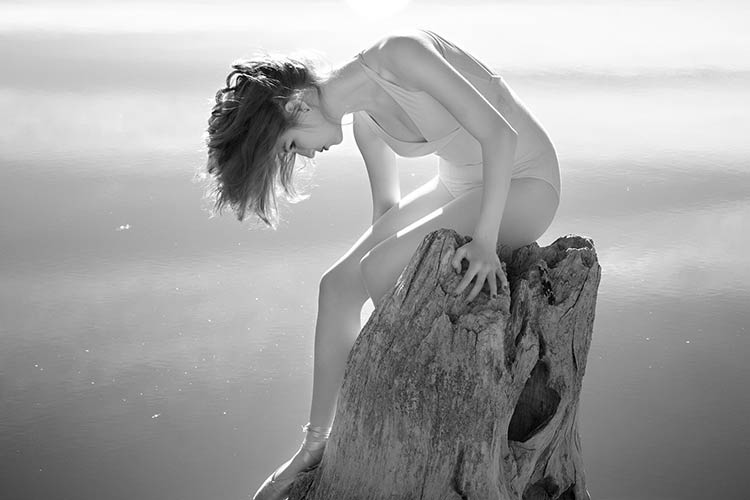How photography found her and our upcoming joint workshop!
Have you ever looked at a photograph or painting that seemed to speak to your soul? People often say “a picture is worth a thousand words,” and I’ve seen this firsthand. An image has the power to express what words often can’t describe.
Visionary photographer Laurie Klein has the gift of being able to capture the true essence of her subjects. Following her passion for photography at a young age, she was mentored by the talented Ansel Adams. He described her style as “unique, combining a wonderful ability for composition and a sensitivity to her subjects that will carry her to the top of her field. I can’t teach the way she sees and feels!”
Well-known for her signature infrared photography, her images have captivated and inspired people all around the world. The people who attend Laurie’s themed photographic workshops often use the transformative experience as a catalyst for personal growth. I had the pleasure of speaking to Laurie about her work, healing through creativity and how to tap into our inner muse.
RC: As an artist, what do you want to communicate to someone looking at your photographs, or what do you hope they personally find in your work?
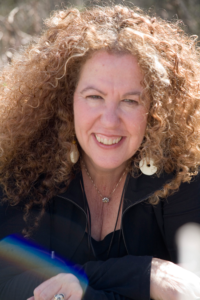
LK: My hope is that somebody will be able see my photos, and… bring their own history, their own baggage, their own experience, and make it part of them—where it belongs to them and they can interpret it their own way… I’d like to get people to feel, and ask questions of themselves. I also want people to be inspired. It’s storytelling, about feeling and expressions and life journeys. To me, any art is a mirror. My mirror to myself is one thing, but I hope that somebody can look at these pictures and learn something about themselves… Maybe it will resonate and touch something deep inside, could be a memory or a feeling, then interpret and own those expressions in their own way. It could act as a moving catalyst.
I think in this culture we have a tendency, as with TV shows, where nothing is left to the imagination. I want something left to the imagination; I want my viewer to participate, to be moved. I know one of the powers of infrared is the images are lush and they’re beautiful, and as the viewer looks at them I hope they realize there are layers. The viewer can go as deep as they are ready to go. If they just want to see the beauty in the image, that’s fine, but if they want to peel the layers back, they can go deeper into their own world. That would be my hope.
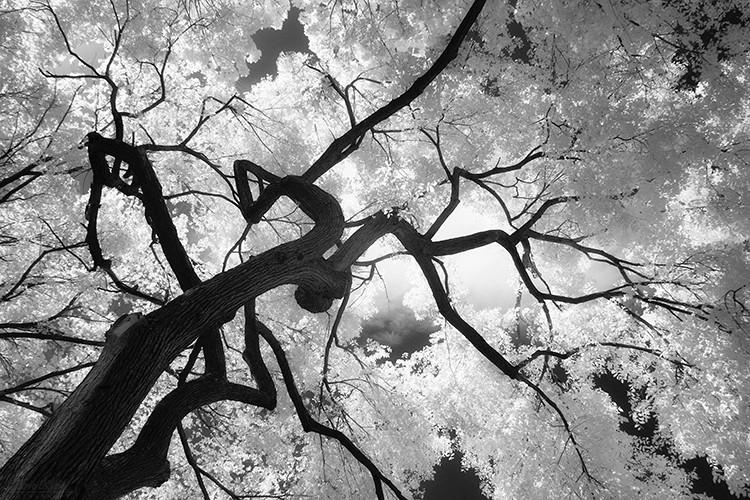
RC: Mentoring seems to figure largely into your experience as an artist. You learned from one of your own heroes, Ansel Adams, and now you teach your own students. What do those relationships mean to you and your own art?
LK: I was very, very lucky that at a young age to found my passion, and it was because of other people that I am where I am today. When I began in high school I had no idea I had any natural ability in the arts. I had a music teacher who was amazing. I took every music class I possibly could with him. He was my role model, he had a gift and loved what he did. I had a decent voice, but nothing that I could make a career with. I think every kid, actually everyone, wants to find something that they’re good at and that they love. And so I decided that it was time to try something else, experiment and be exposed to other things.
So I took an art class. I was awful. I have no hand-eye coordination at all. Then I picked up a camera, my world changed, I started getting all these awards and all these accolades. And what kid doesn’t like all that attention? It was fun, and I realized there was something there. So if it wasn’t for people who helped me, my mentors, my role models, I wouldn’t be where I am right now.
I was 20 when Ansel mentored me. I was young, and I don’t think I really realized the impact he would have on my life until later years. He was a passionate teacher, a passionate photographer, and passionate about the landscape. I wanted to imbue those characteristics and be in love and passionate about what I created and what I passed on to others.
I’ve always felt that it was very important to pay it forward… Every time I do a mentoring group I say, “I don’t know who gets more out of it—the students or me.”… I’m very much about process when I teach, about the process of creativity. I don’t need my students to be making my art for me. They have to dig deep and figure out what resonates for them. Even if they don’t become photographers, they’re learning how to tap into that creativity muscle that they can use in all walks of life… Also with all of the pressures on young people they need an outlet; a way to express feelings inside of them, to get them out instead of suppressing them… These kids get so excited about because they are learning it for the first time and it renews that love of my camera that I’ve taken for granted because it’s just been with me for so long. I get to see it through their eyes again, and it keeps me young and in love with photography.
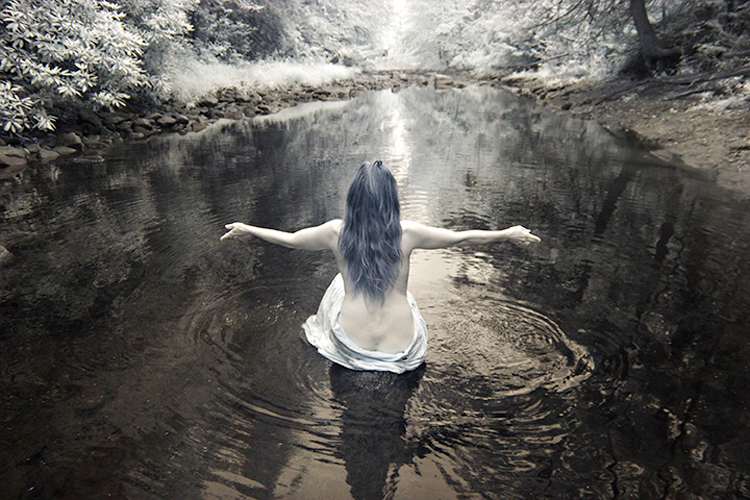
RC: You have said that, “I didn’t really discover my passion, my passion discovered me.” How did photography find you and what was that realization like?
LK: My parents just happened to be having some professional photographers over for dinner one night. I mean, how no coincidental was that? They said, “Why don’t you show them your photographs, Laurie?” And I’m like; “I’m not showing professional photographers my snapshots!” Well, I showed them my work, and my life changed…Basically they said I had this great eye for composition and that I could be a really good photographer. They invited me to their house to go into the darkroom, and I think when I saw a print being developed… I think that hooked me. It was magic. I was enchanted and hooked.
Recently, I was at a career fair at one of the high schools talking about photography as a career, and I had a student come up and ask me what my story was. After I told her my story, she was the one who said to me, “Oh, it sounds like photography found you.”
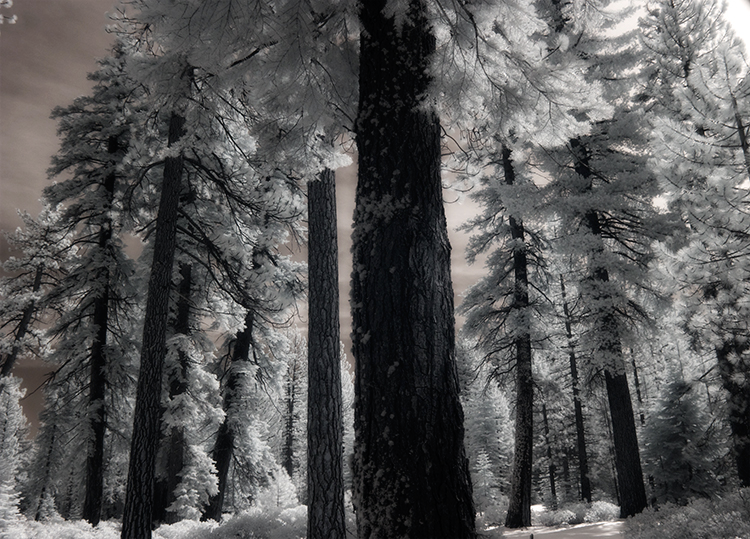
RC: You lead a number of workshops that all essentially guide your students in some form of self-discovery: finding their niche as an artist, harnessing their creativity, and your renowned Celebrate the Feminine! Sessions. What do you think is most important for someone to have that breakthrough moment to find themselves through creativity and freedom of experience?
LK: I facilitate, by creating an experience. It’s a very safe environment. There’s a lot of trust, and communication… If you provide a safe environment, people are comfortable and they’re more apt to relax, let you in, go to those special heartfelt places… People are hungry to be creative. They’re hungry to be a part of something like this. If you take a yoga class, and you have a good facilitator, they are creating a space for you that is a haven. It’s safe on all levels. The more you feel that you’re in that place, the more you can let go and tap into yourself. That’s a huge part.
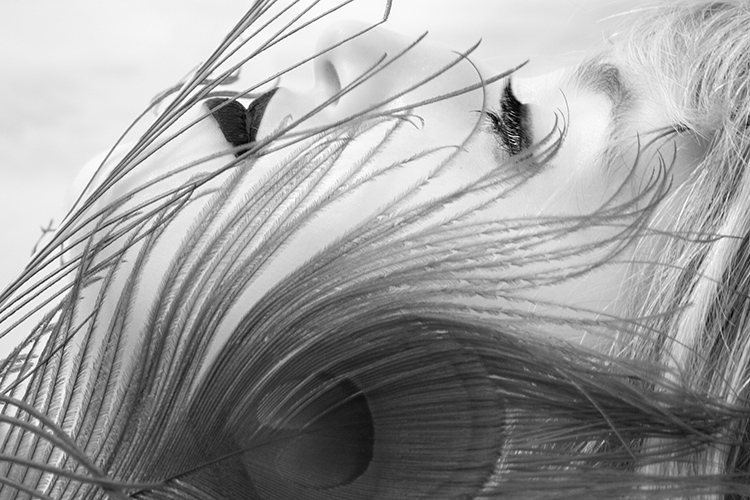
RC: Couldn’t agree more! Thank you so much for taking the time to share your insights with the Rewire Me audience. I am so excited about partnering with you on the workshop: A Transformative Journey: Self Discovery Through Photography.
LK: My pleasure! And yes, I’m looking forward to the workshop. It’s going to be a truly unique experience for people.
The workshop will be on November 11. Stay tuned for more details!
To view more photographs, please visit Laurie Klein’s website.
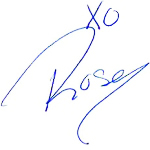
Rose Caiola
Inspired. Rewired.

